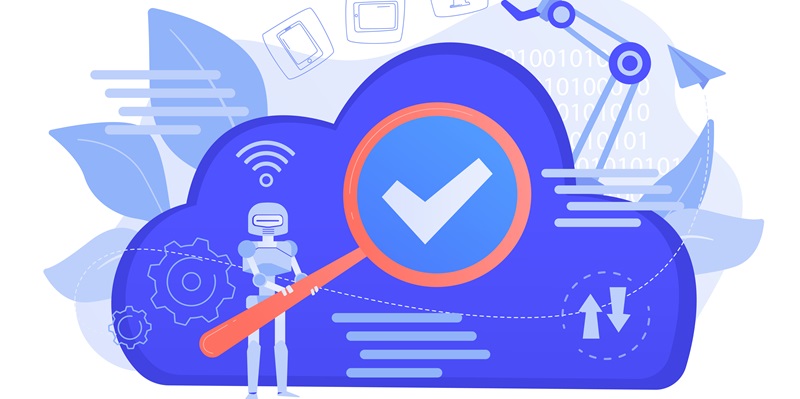In today’s rapidly evolving digital landscape, organizations are striving to leverage cloud technologies for enhanced productivity and operational efficiency. Cloud automation has emerged as a vital component in their digital transformation journey, providing the tools and capabilities to optimize cloud operations and streamline business processes.
AI and ML Integration in Cloud Automation
One of the prominent trends in the cloud automation market is the integration of artificial intelligence (AI) and machine learning (ML) capabilities. By harnessing the power of AI and ML, organizations can unlock predictive analytics, intelligent decision-making, and self-healing systems. These advanced technologies enable cloud automation platforms to analyze vast amounts of data, identify patterns, and make proactive adjustments to optimize resource utilization and performance.
The growing importance of security automation
As organizations continue to migrate their operations to the cloud, security becomes a paramount concern. Cloud automation now includes robust security features, integrating automated threat detection, incident response, and compliance management. By automating security processes, organizations can effectively mitigate risks, proactively identify vulnerabilities, and ensure continuous compliance with regulatory standards.
The Influence of Serverless Computing on Cloud Automation
The rise of serverless computing is greatly influencing cloud automation trends. Serverless architecture allows organizations to run applications without the need for managing servers or infrastructure. This shift drives event-driven automation, where actions are triggered by specific events or conditions. By leveraging serverless computing and event-driven automation, organizations can achieve greater efficiency in resource allocation and cost optimization, as services are dynamically scaled based on demand.
Managing Hybrid and Multi-Cloud Environments through Cloud Automation
With organizations increasingly adopting hybrid and multi-cloud strategies, managing diverse cloud environments becomes a complex task. Cloud automation tools are designed to seamlessly manage these environments, providing centralized visibility and control. These tools enable organizations to automate provisioning, monitoring, and management processes across multiple cloud platforms, promoting agility, cost optimization, and workload portability.
Acquisitions in the Cloud Automation Market
The Cloud Automation market is witnessing significant consolidation through acquisitions. Companies are actively seeking to enhance their offerings and expand automation capabilities by acquiring niche players in the market. These acquisitions lead to the integration of innovative technologies, enabling organizations to stay competitive and provide comprehensive cloud automation solutions to their customers.
Strategic Partnerships in Cloud Automation
Strategic partnerships play a pivotal role in shaping the cloud automation landscape. Alliances and collaborations between cloud automation vendors and other technology providers focus on interoperability, integration, and joint innovation. These partnerships aim to address customer needs, leverage complementary technologies, and deliver seamless and integrated solutions that meet the evolving requirements of the market.
Event-driven Automation for Dynamic Cloud Environments
Innovations in event-driven automation platforms empower organizations to dynamically respond to changing conditions in their cloud environments. With the ability to trigger actions based on specific events or thresholds, event-driven automation ensures optimal resource allocation, auto-scaling, and self-healing capabilities. These dynamic automation solutions enable organizations to adapt and optimize their cloud operations to meet fluctuating demands and business requirements.
Cloud automation in DevOps practices
Cloud automation has become an integral part of DevOps practices, enabling organizations to achieve faster software delivery, collaboration, and agility. By integrating automation into their development pipelines, organizations can automate application deployment, testing, and monitoring processes. This streamlined approach eliminates manual errors, reduces time to market, and fosters greater collaboration between development and operations teams.
As organizations navigate the complexities of modern cloud environments, cloud automation emerges as a dynamic and essential solution. The integration of AI and ML capabilities, the growing importance of security automation, the influence of serverless computing, and the ability to manage hybrid and multi-cloud environments seamlessly are just a few of the key trends shaping this market. Strategic partnerships and acquisitions further enhance the capabilities of cloud automation vendors, enabling them to deliver comprehensive solutions that address the evolving needs of their customers. Cloud automation, therefore, plays a crucial role in organizations’ digital transformation journey, streamlining operations, and driving efficiency in their cloud-based initiatives.

